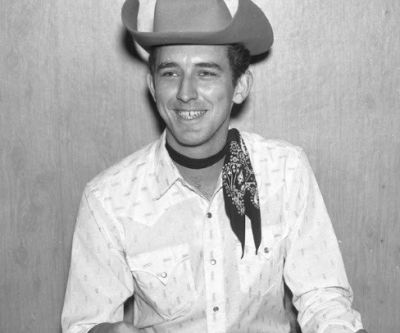December 20, 2018
Tuesday
8:00 p.m.
Minneapolis, MN
Test schedule
A live performance with Robin and Linda Williams at the Cedar Cultural Center
May 20, 2018
Sunday
3:00 p.m.
Lexington, MA
Lexington, MA
A live performance at the Saenger Theatre
April 10, 2018
Tuesday
8:00 p.m.
Tulsa, OK
Tulsa, OK
A live performance at the Brady Theater
March 17, 2018
Saturday
8:00 p.m.
Long Beach, CA
Long Beach, CA
A live performance at the Carpenter Performing Arts Center
March 15, 2018
Thursday
7:00 p.m.
Mobile, AL
Mobile, AL
A live performance at the Saenger Theatre
“Hymn to the Belly” by Ben Jonson. Public domain. (buy now)
ROOM! room! make room for the bouncing Belly,
First father of sauce and deviser of jelly;
Prime master of arts and the giver of wit,
That found out the excellent engine, the spit,
The plough and the flail, the mill and the hopper,
The hutch and the boulter, the furnace and copper,
The oven, the bavin, the mawkin, the peel,
The hearth and the range, the dog and the wheel.
He, he first invented the hogshead and tun,
The gimlet and vice too, and taught ’em to run;
And since, with the funnel and hippocras bag,
He’s made of himself that now he cries swag;
Which shows, though the pleasure be but of four inches,
Yet he is a weasel, the gullet that pinches
Of any delight, and not spares from his back
Whatever to make of the belly a sack.
Hail, hail, plump paunch! O the founder of taste,
For fresh meats or powdered, or pickle or paste!
Devourer of broiled, baked, roasted or sod!
And emptier of cups, be they even or odd!
All which have now made thee so wide i’ the waist,
As scarce with no pudding thou art to be laced;
But eating and drinking until thou dost nod,
Thou break’st all thy girdles and break’st forth a god.
It was on this day in 1935 that listeners first heard FM radio, when the American inventor Edwin Howard Armstrong gave a demonstration in Alpine, New Jersey. Armstrong demonstrated the clarity of FM compared to AM radio by playing classical music and the sound of water being poured.
It’s the birthday of the playwright Ben Jonson (books by this author), born on this day in London, probably in 1572. His plays include Every Man in His Humour (1598), Volpone (1606), The Alchemist (1610), and Bartholomew Fair (1614). A contemporary, friend, and rival of Shakespeare’s, Jonson was a heavy drinker and a fighter, no “Gentle Will.”
Jonson’s father died before he was born, and his stepfather was a bricklayer, so after a good education, young Ben spent some time laying bricks and then went off and joined the army. The story goes that he ran to the front of the lines and challenged a random soldier to single combat, then killed him. He went back to London, where he got work as an actor. Apparently he wasn’t a very good actor, but he was a good playwright. In 1597, he co-wrote a play called The Isle of Dogs, which got him in trouble with the government—it was too subversive, and he was thrown in jail for “leude and mutynous behavior.” He was let out after a few months, but a year later, he killed a fellow actor named Gabriel Spenscer in a duel. He was arrested and he should have been hanged, but he pulled out a legal defense called “benefit of clergy”—since he could read the Bible in Latin, he got to go in front of a more lenient court, which rarely sentenced well-educated men. Instead, he got another stint in jail, and was branded on his thumb to remind him that he had almost been executed. In 1604, he co-wrote a play called Eastward Ho! that mocked Scotland—since James VI of Scotland had taken over the throne from Elizabeth, making fun of Scotland was not tolerated, and Jonson was once more thrown in jail and informed that his ears and nose would be cut off. This threat never materialized, and when he was released, he hosted a banquet with friends to celebrate yet another narrow escape.
Jonson’s plays were more classically inspired than Shakespeare’s, less dependent on bawdy jokes and flashy duels. Jonson made plenty of disparaging comments about Shakespeare. He complained that his fellow playwright had “small Latine, and less Greeke.” And Jonson was probably alluding to Shakespeare, who did have a tendency to rip off plots from other people, when he wrote:
“Poor Poet-Ape, that would be thought our chief,
Whose works are e’en the frippery of wit,
From brokage is become so bold a thief,
As we, the robb’d, leave rage, and pity it.
At first he made low shifts, would pick and glean,
Buy the reversion of old plays; now grown
To a little wealth, and credit in the scene,
He takes up all, makes each man’s wit his own :
And, told of this, he slights it. Tut, such crimes
The sluggish gaping auditor devours ;
He marks not whose ’twas first : and after-times
May judge it to be his, as well as ours.
Fool! as if half eyes will not know a fleece
From locks of wool, or shreds from the whole piece?”
Unlike Shakespeare, Jonson was known as a slow, meticulous writer. After Shakespeare’s death, Jonson wrote: “I remember the players have often mentioned it as an honor to Shakespeare that in his writing, whatsoever he penned, he never blotted out a line. My answer hath been, would he had blotted a thousand. […] I loved the man and do honor his memory on this side of idolatry, as much as any: he was indeed honest, and of an open and free nature; had an excellent phantasy, brave notions, and gentle expressions; wherein he flowed with that facility, that sometimes it was necessary he should be stopped.”
Ben Jonson was famous for his ability to drink—it is said that when he converted from the Catholic Church to the Anglican Church in 1610, he downed the entire chalice of wine during his first communion. His bar of choice was the Mermaid Tavern in Cheapside, where he was the ringleader of a group of literary men. There are stories about the great debates and battles of wit that Jonson and Shakespeare had over their pints at the Mermaid, surrounded by the likes John Donne, Sir Walter Raleigh, John Fletcher, Sir Francis Bacon, and Francis Beaumont—but this is probably not true. More likely it was Jonson and some younger literary disciples who were regular patrons. After Jonson’s death, the playwright Jasper Mayne wrote an ode, “To the Memory of Ben Jonson,” and he wrote: “Such thy drought was, and so great thy thirst, / That all thy Playes were drawne at th’ Mermaid first.”
It’s the birthday of novelist William Styron (books by this author), born in Newport News, Virginia (1925). He got a job with a publisher, McGraw Hill, but he hated every minute of it, and decided he needed to leave. So he threw balloons out the office window until he was fired. After that, he committed himself to writing. In a letter to his father, he said, “Writing for me is the hardest thing in the world, but also a thing which, once completed, is the most satisfying…I am not a prodigy but, fate willing, I can produce art.” In 1951, when he was 26 years old, he published his first novel, Lie Down in Darkness. It’s the story of a beautiful young woman named Peyton Loftis who commits suicide. It got great reviews, and critics compared Styron to William Faulkner.
Styron was awarded the Rome Prize, and before his time in Italy he decided to spend a summer in Paris. There he met a group of ex-pat writers that included Peter Matthiessen, George Plimpton, and James Baldwin. He said, “I had just published a first novel and was a celebrity, though one of very low rank since few of the Americans in Paris had heard of my book, let alone read it.” He was only in Paris for about six weeks, but he helped found The Paris Review, which debuted in 1953. Styron was one of the first writers interviewed for the “Art of Fiction” section. Matthiessen and Plimpton conducted the interview, and they wrote: “Styron, shading his eyes, peers down into his coffee. He is a young man of good appearance, though not this afternoon; he is a little paler than is healthy in this quiet hour when the denizens of the quarter lie hiding, their weak eyes insulted by the light.” In that interview, they asked him: “Do you enjoy writing?” and Styron replied: “I certainly don’t. I get a fine, warm feeling when I’m doing well, but that pleasure is pretty much negated by the pain of getting started each day. Let’s face it, writing is hell.” At the end of the interview, Matthiessen and Plimpton asked Styron about the purpose of young writers. He replied: “The purpose of a young writer is to write, and he shouldn’t drink too much. He shouldn’t think that after he’s written one book he’s God Almighty and air all his immature opinions in pompous interviews. Let’s have another cognac and go up to Le Chapelain.”
Styron went on to write The Confessions of Nat Turner (1967), Sophie’s Choice (1979), Darkness Visible: A Memoir of Madness (1990), and The Suicide Run: Five Tales of the Marine Corps (2009).
He said, “The good writing of any age has always been the product of someone’s neurosis, and we’d have a mighty dull literature if all the writers that came along were a bunch of happy chuckleheads.”
And, “I think whatever reputation I have is obscured by the simple fact that very few writers who are not perpetually in the public eye really have much of a reputation at all in this vast country. On the totem pole of reputation and of cultural acceptance, we’re not very high, any of us. […] I don’t want to sound like I’m singing the blues that writers are doomed to obscurity, because they’re not. But on the totem pole, we’re somewhere in the area of your local psychiatrist.”
It’s the birthday of German composer Richard Strauss, born in Munich in 1864. He’s known for writing what he called “tone poems” inspired by literary characters. He wrote Don Juan (1889) and Don Quixote (1897), and operas too, of course. In 1905, he wrote the opera Salome, based on the play by Oscar Wilde.
He said, “I may not be a first-rate composer, but I am a first-class second-rate composer.”
It’s the anniversary of the Broad Street Riot in Boston, on this day in 1837.
June 11, 1837 was a hot, humid Sunday afternoon in Boston. Fire Engine Company 20 — made up primarily of Protestant “Yankees,” descendants of the original English settlers — was coming back from Roxbury, where they had put out a fire. Most of the firemen went to a nearby saloon afterward to have some drinks. When they left the saloon, they started walking down Broad Street toward the fire station and passed about 100 Irish immigrants on their way to join a funeral procession around the corner on Sea Street. Most of the firemen lived in the working-class districts of Boston where ethnic tensions were particularly high, and some of them were suspected of having been involved in the burning of a convent a few years earlier. But still, the two groups almost walked by each other without incident, except that a 19-year-old fireman named George Fay had a few more drinks than his friends, and he either insulted someone or hit someone, and soon the firemen and the Irish were fighting. In no time at all, it turned into a full-scale brawl, and then a riot. Other Yankees, many of them young men, broke into Irish homes, smashing and looting. At least 800 men were fighting in the streets, with plenty more onlookers.
Finally, the mayor of Boston, Samuel Eliot, intervened and sent in about 800 state militia with fixed bayonets to disperse the riot. Eighteen men were prosecuted, 14 of them Irish immigrants, and three of those immigrants were put in prison; the rest of the Irish men and all of the Yankees were let off.






